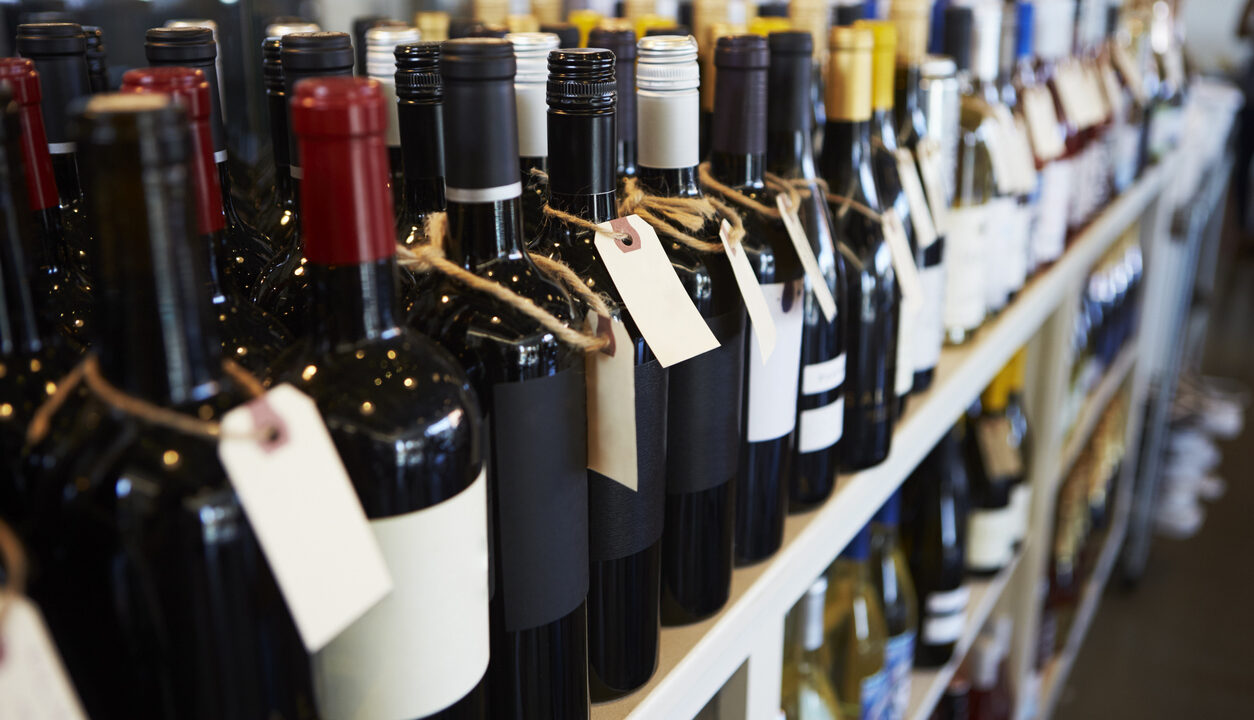Fact Sheet

The PLCB’s Boondoggles
PLCB History
In 1933, four days before the end of Prohibition, then-Gov. Gifford Pinchot established the Pennsylvania Liquor Control Board (PLCB). Pinchot created the PLCB to fill the regulatory gap left by the repeal of the 18th Amendment.[1] Since then, the PLCB has proven itself counter-productive. At the 50-year mark, an op-ed in the Philadelphia Inquirer, wrote “Pinchot’s great experiment turned out to be a great mistake.” It described the PLCB as “making it as inconvenient and as expensive as possible” to buy alcohol in the state.[2] Now at nearly 90 years old, not much has changed. Here are the biggest PLCB boondoggles in just the past two decades.
Incompetence
- In 2009, the PLCB launched a plan to sell wine from vending machines at grocery stores. After just over a year, the program ended at the suggestion of the Auditor General thanks to poor sales, mechanical problems, and public scrutiny.[3]
- The PLCB, in 2011, created its own wine brand, TableLeaf.[4] The wine, sourced from California, enjoyed a marketing budget totaling between $7–10 million that was backed by taxpayers. The PLCB’s foray with an “in-house” label directly competed with local Pennsylvania wine brands. In 2014, the PLCB pulled TableLeaf from shelves.[5] At the time, the agency’s chairman, Joseph Brion, admitted the PLCB did not need its own brand of wine.[6]
- Act 39, passed in 2016, allowed private distributors to sell products directly to restaurants if the product was not available at state stores. However, a lawsuit revealed that the PLCB never allowed this to happen, forcing the PLCB to repay millions of dollars in handling fees.[7]
- During the COVID-19 pandemic, the PLCB closed all state stores and ended online liquor sales in March of 2020. Pennsylvanians flooded liquor stores in other states.[8] The demand was so overwhelming that border states like Ohio, West Virginia, and Maryland refused to serve Pennsylvanians.[9]
Waste
- The PLCB’s “Retail Education Center” has a $35,000 wine-tasting room, complete with a wine cooler, a $5,000 bar, two big screen televisions, and leather furniture.[10]
- In 2011, the PLCB spent $66 million on a “state of the art” inventory system that cost 2.5 times the original estimate.[11] The system led to widespread product shortages and mismanaged inventories.
- In 2007, then-Governor Ed Rendell created an executive director position at the PLCB.[12] After retiring from the state legislature following the 2005 pay raise scandal, Joe Conti was appointed to the executive director position, earning $150,000. PLCB Chairman Jonathan Newman resigned in objection to this appointment.[13]
Questionable Ethics
- A 2011 PLCB “Control Tonight” sobriety campaign advertisement attracted international scrutiny.[14] The advertisement suggested that rape victims and their friends were to blame for being attacked. The PLCB pulled the advertisement after significant backlash.
- In 2014, three former top PLCB officials were implicated in a pay to play scandal, accepting golf trips, cash, and other gifts from four liquor vendors.[15] Punishments for those involved were light and chalked up to the “cost of doing business with the PLCB.”
- Act 39 of 2016 permitted the PLCB to set its own retail prices. In 2017, the PLCB announced that it would increase prices on 422 products.[16] The hikes were an intent to increase revenue to the state, but actual revenue totaled only 29 percent of what the PLCB initially promised. Pennsylvanians, though forced to pay more, received little to no benefit from the PLCB’s newfound authority.
- In 2019, despite the Supreme Court’s 2018 Janus decision, the PLCB voted against notifying its employees of their First Amendment right to not pay union fees.[17] Government employees should not be deprived of information required to make an informed decision about their union status.
The Push for Privatization
The PLCB’s monopoly on liquor sales has enabled incompetence, waste, and questionable ethics. The agency’s recurring shenanigans host boondoggle after boondoggle. As long as this government monopoly exists, there will be little to no accountability for those responsible for the mishaps. Pennsylvanians will continue to pay for the PLCB’s incompetence. House Bill 2272 would finally get the government out of the booze business.
[1]Gifford Pinchot, “Liquor Control in the U.S.A,” The Rotarian, January 1934, https://books.google.com/books?id=n0AEAAAAMBAJ&pg=PA12&lpg=PA12&dq=gifford+pinchot+liquor+control+board&source=bl&ots=TpWlS6MSRO&sig=5IjrEPgtwVxMDxdAnPaGSplcqBg&hl=en&sa=X&ei=FUMJUcuPNo6F0QGfoIEo#v=onepage&q=gifford%20pinchot%20liquor%20control%20board&f=false.
[2]George Wilson, “State Liquor Laws Go Back to the ‘30s,” Philadelphia Inquirer, September 23, 1983, https://www.newspapers.com/clip/67066969/genesis-of-plcb-quote/.
[3]Sue Gleiter, “PLCB Pulls the Plug on Wine Kiosks in Grocery Stores,” PennLive, September 21, 2011, https://www.pennlive.com/midstate/2011/09/plcb_pulls_the_plug_on_wine_ki.html.
[4]Commonwealth Foundation, “PLCB Spills Grapes of Wrath!” October 1, 2012, https://www.commonwealthfoundation.org/2012/10/01/plcb-spills-grapes-of-wrath/.
[5]Commonwealth Foundation, “TableLeaf is Dead, Booze Bureaucracy Remains,” February 24, 2014, https://www.commonwealthfoundation.org/2014/02/24/tableleaf-is-dead-booze-bureaucracy-remains/.
[6]Kari Andren, “Pennsylvania Discontinues In-house Wine Brand,” TribLive,February 19, 2014, https://archive.triblive.com/news/pennsylvania/pennsylvania-discontinues-in-house-wine-brand/#axzz2uGOA02I7.
[7]Harold Brubaker, “Restaurants Sue the Pennsylvania Liquor Control Board over Wine Handling Fees,” Philadelphia Inquirer, May 7, 2020, https://www.inquirer.com/business/plcb-wine-restaurants-class-action-commonwealth-court-20200507.html
[8]Peter Suderman, “Pennsylvania has Made it Both Difficult and Dangerous to Buy Liquor,” Reason Magazine, April 7, 2020, https://reason.com/2020/04/07/pennsylvania-has-made-it-both-difficult-and-dangerous-to-buy-liquor/
[9]Suderman, “Difficult and Dangerous to Buy Liquor.”
[10]Commonwealth Foundation, “Liquor’s Lap of Luxury a Laughingstock,” May 7, 2012, https://www.commonwealthfoundation.org/2012/05/07/liquors-lap-of-luxury-a-laughingstock/.
[11]Commonwealth Foundation, “AG Audit Finds Rampant PLCB Waste and Mismanagement,” August 1, 2011, https://www.commonwealthfoundation.org/2011/08/01/ag-audit-finds-rampant-plcb-waste-and-mismanagement/
[12]Nathan Benefield, “Getting Rich off the Government Liquor Monopoly,” Commonwealth Foundation, October 3, 2013, https://www.commonwealthfoundation.org/2013/10/03/getting-rich-off-the-government-liquor-monopoly/.
[13]“PLCB Chair Departure Offers an Opportunity,” Times Leader, January 9, 2007, https://www.timesleader.com/archive/1109980/plcb-chair-departure-offers-an-opportunity.
[14]Beth Stebner, “’She couldn’t say no’: The shocking state date-rape ad pulled amid anger over suggestions that drunken victims are to blame” Daily Mail UK, December 9, 2011, https://www.dailymail.co.uk/news/article-2071890/She-say-Pennsylvania-Liquor-Control-Board-pulls-controversial-ad-blames-date-rape-victims-victims-friends-receiving-hundreds-complaints.html.
[15]“Big PLCB Scandal, Little Accountability: What Monopoly Fosters,” Tribune Review, July 31, 2017, https://archive.triblive.com/opinion/editorials/big-plcb-scandal-little-accountability-what-monopoly-fosters/.
[16]Jan Murphy, “Liquor Board Increases Prices on 422 Popular Wine and Spirit Products,” PennLive, August 2, 2017, https://www.pennlive.com/politics/2017/08/liquor_board_votes_to_increase.html.
[17]Commonwealth Foundation, “PLCB Keeps Employees in the Dark,” February 1, 2019, https://www.commonwealthfoundation.org/2019/02/01/plcb-keeps-employees-in-the-dark/.